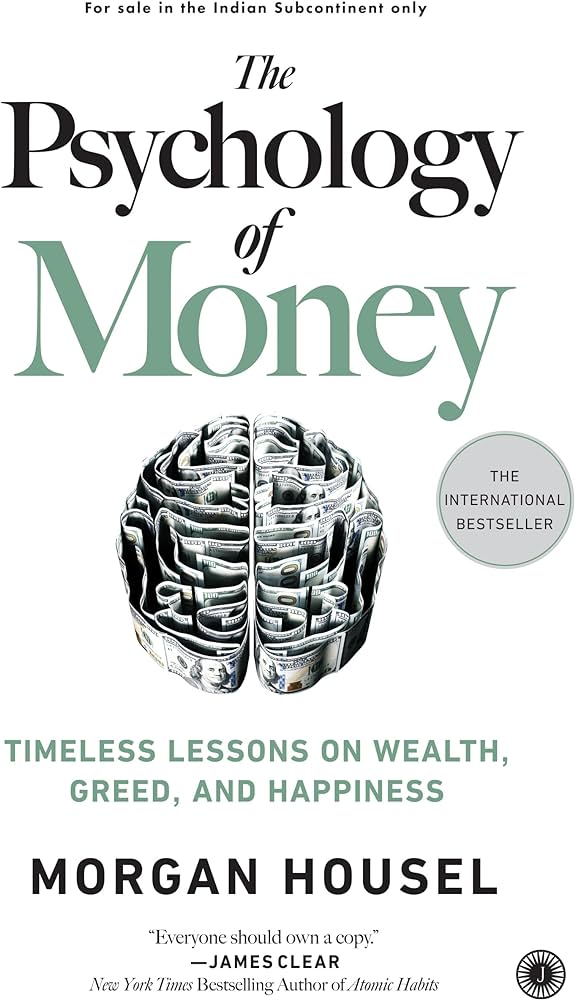
The Psychology of Money: Timeless Lessons on Wealth, Greed, and Happiness is a widely acclaimed book by Morgan Housel. It explores the complex relationship between people and money, delving into the psychological aspects of financial decision-making rather than just focusing on the technical aspects of wealth management.
Download The Psychology of Money pdf, 3 MB a high-quality pdf format as a Google Drive Link.
Name: The Psychology of Money:
Timeless Lessons on Wealth, Greed, and Happiness
Author: Morgan Housel
File size: 3 MBP
ages: 256Published Date: September 8, 2020Google Drive Link
Key Themes and Concepts:
Behavior Over Knowledge: Housel emphasizes that financial success is more about behavior and psychology than technical knowledge. How people think about money, their attitudes, and their actions play a more significant role in wealth accumulation than complex financial strategies.Wealth vs.
Riches: The book distinguishes between being rich and being wealthy. Being rich is about having a high income, while being wealthy is about having the freedom to live life on one’s terms, which often involves saving, investing wisely, and making long-term decisions.
The Role of Luck and Risk: Housel discusses the importance of recognizing the role of luck in financial success and the inevitability of risk. He argues that understanding these factors can lead to more realistic expectations and better financial decisions.
The Power of Compounding: One of the central lessons of the book is the power of compounding over time. Housel illustrates how consistent, patient investing can lead to significant financial growth, highlighting the importance of time in the investment process.
The Danger of Comparison: The book warns against comparing oneself to others financially, as it can lead to unhealthy financial decisions driven by envy or greed. Housel encourages readers to focus on their own financial goals and circumstances.
Emotional Decision-Making: Housel explores how emotions can heavily influence financial decisions, often leading to irrational choices. He advises cultivating a mindset that separates emotions from financial decisions to achieve better outcomes.
Flexibility and Control: The book underscores the importance of maintaining flexibility and control over one’s financial life. This includes having a financial cushion, avoiding debt, and making decisions that allow for adaptability in changing circumstances.
The Value of Contentment: Housel suggests that true financial success involves finding contentment with what one has, rather than constantly seeking more. This mindset can lead to greater happiness and a healthier relationship with money.
Structure: The book is divided into 20 short chapters, each focusing on a specific lesson or story that illustrates a psychological aspect of money management. Housel uses anecdotes, historical examples, and research to make his points relatable and easy to understand.
Writing Style: Housel’s writing is accessible, engaging, and filled with practical wisdom. He avoids technical jargon and focuses on conveying complex ideas in a straightforward manner, making the book suitable for readers of all backgrounds, whether they are new to personal finance or experienced investors.
Conclusion: The Psychology of Money provides readers with timeless lessons on how to think about and manage money in a way that leads to financial security, contentment, and a fulfilling life. It’s a valuable resource for anyone looking to improve their financial well-being by understanding the psychological factors that drive their financial decisions.

Get involved!
Comments